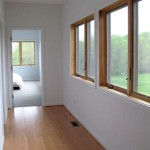Interior Trim Wood: Enhancing the Aesthetics and Functionality of Your Home
Interior trim wood, also known as molding, plays a crucial role in defining the character and style of a home. It encompasses a wide range of decorative elements, such as baseboards, crown molding, chair rails, and window and door casings, that are used to accentuate architectural features, create visual interest, and enhance the overall design aesthetic. The use of interior trim wood has been a prevalent practice in building construction for centuries, adding both beauty and functionality to interior spaces.
Aesthetic Value of Interior Trim Wood
Interior trim wood possesses inherent aesthetic qualities that can significantly elevate the visual appeal of a home. The natural grain patterns, rich colors, and tactile textures of wood create a warm and inviting ambiance. Different wood species offer unique visual characteristics, allowing homeowners to choose the style that best complements their design preferences. For instance, oak wood is known for its sturdy grain and rustic charm, while cherry wood boasts a warm reddish hue and elegant appearance. The choice of wood type can also contribute to the overall atmosphere of a space, with lighter woods like maple creating a brighter and airy feel, while darker woods such as walnut contribute to a more traditional and sophisticated ambience.
Beyond the inherent beauty of wood itself, interior trim can be further enhanced through various decorative techniques. Moulding profiles can be customized to create intricate patterns and designs, adding dimension and visual interest to walls and ceilings. Paint finishes can be applied to accentuate the wood's natural grain or create a contrasting look. The use of different trim profiles and finishes allows for endless possibilities in achieving a unique and personalized style.
Functionality of Interior Trim Wood
Interior trim wood serves a variety of functional purposes, contributing to the practicality and efficiency of a home. Baseboards protect walls from scuffs and damage, while crown molding can conceal imperfections in the ceiling line. Chair rails provide a visual barrier and prevent damage to walls in high-traffic areas. Window and door casings improve the insulation and energy efficiency of the home by providing a tighter seal around openings. Furthermore, interior trim can be used to create visual separation between different areas of a room, helping to define spaces and enhance functionality.
Types of Interior Trim Wood
The selection of appropriate interior trim wood depends on the specific needs and preferences of the homeowner. Some commonly used wood species for interior trim include:
- Oak: Durable, strong, and known for its distinct grain patterns. Available in a variety of colors and finishes.
- Maple: Hard, light-colored wood with a fine grain, offering a bright and airy feel.
- Cherry: Rich reddish-brown color with a fine, even grain, known for its elegance and warmth.
- Walnut: Dark brown wood with a distinctive grain pattern, providing a sophisticated and traditional feel.
- Pine: Softwood with a light color and a pronounced grain, often used for budget-friendly applications.
In addition to wood species, interior trim can be made from other materials such as MDF (medium-density fiberboard), PVC (polyvinyl chloride), and polyurethane. These alternatives offer varying levels of durability, cost, and aesthetic qualities, providing homeowners with a range of choices based on their specific needs and budget.

Interior Wood Trim

The Pros Cons Of Painting Wood Trim Modern Remodeling

Natural Wood Is Making A Comeback Strait And Lamp Group

4 Simple Tips To Make The Most Of Interior Trim Datacolor Colorreader

How To Stain Wooden Trim Interior Wood Colors

Light Wood Trim With White Walls I Never Thought Liked Stained But This Is Gorge Paint Colors For Living Room Natural

5 Tips For Decorating With Wood Trim Jordecor

Fixr Com Wood Trim Installation Cost S

A Warm And Inviting Boho Style La Home Scandinavian Living Room Interior

5 Tips For Decorating With Wood Trim Jordecor








